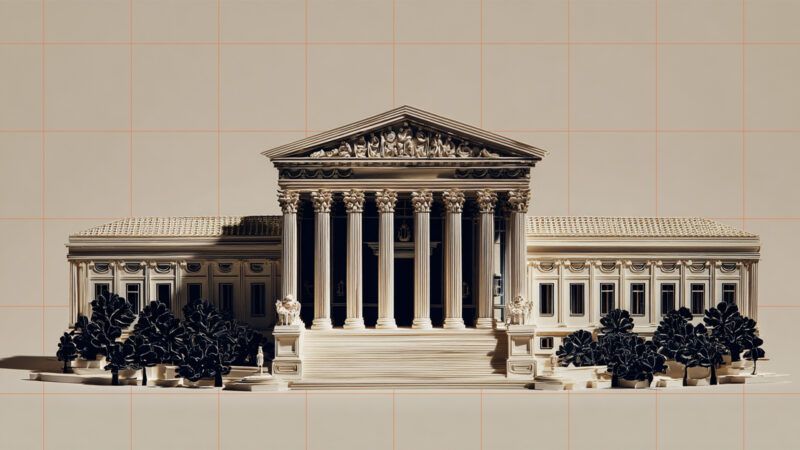Trump's 'Firing' of Lisa Cook Is Headed for SCOTUS
Plus: Pam Bondi flunks free speech 101.

The U.S. Court of Appeals for the District of Columbia Circuit issued an important decision this week in favor of Lisa Cook, the embattled member of the Federal Reserve's Board of Governors whom President Donald Trump is currently seeking to fire. The ruling lets Cook remain in her job for now while also practically guaranteeing that the U.S. Supreme Court will soon take up the case.
You’re reading Injustice System from Damon Root and Reason. Get more of Damon’s commentary on constitutional law and American history.
By a 2–1 vote on Monday, the D.C. Circuit blocked Trump's purported firing of Cook from going into effect while her lawsuit plays out. Why? Because, the D.C. Circuit said, Cook "is likely to succeed" in showing "that she did not receive sufficient process prior to her removal in violation of the Due Process Clause of the Fifth Amendment."
According to the Federal Reserve Act, the president may remove a member of the Federal Reserve's Board of Governors "for cause." In this case, Trump alleges that "there is sufficient cause to remove" Cook from her position as a Fed governor because there is "sufficient reason to believe [Cook] may have made false statements on one or more mortgage agreements." At this point, however, Trump's allegations against Cook are just that, allegations. No formal charges have been filed against Cook, and she has not been convicted of any wrongdoing.
The D.C. Circuit took no position this week on whether Trump's allegations against Cook are enough to satisfy the "for cause" requirement. Instead, the court only addressed her due process claim. That procedural win was enough to keep Cook in her job for the time being.
But the sole dissenter in the case, Judge Gregory Katsas, did address Trump's allegations against Cook, arguing that they are in fact sufficient to justify her firing. According to Katsas, "for cause" is a "broad" phrase that places significant discretion in the hands of the president. Trump "plainly invoked a cause relating to Cook's conduct, ability, fitness, or competence," Katsas argued, and that invocation alone is enough, in his view, to render her removal lawful.
Katsas' dissent effectively tees up the big questions that SCOTUS will have to answer when it hears the case. Namely, is an allegation of wrongdoing sufficient to satisfy the "for cause" requirement needed to remove a Fed official like Cook? Or does "for cause" mandate something more concrete than a mere allegation, such as a formal charge or a conviction? The Supreme Court will also need to consider whether the allegations against Cook are merely a pretext given by Trump to justify the otherwise illegal firing. In other words, do the courts have to accept the president's stated rationale at face value?
The Trump administration has already announced that it will be appealing this loss, so the Supreme Court may be expected to join the fray relatively soon. Stay tuned.
In Other Legal News: Pam Bondi Flunks Free Speech 101
Attorney General Pam Bondi is under the mistaken impression that the federal government may punish "hate speech" without violating the First Amendment. I realize that other politicians and pundits have espoused this same erroneous view in recent years, but there is something especially noxious when it is the attorney general of the United States doing the espousing.
Because Bondi is apparently in need of a crash course on free speech, I would urge her to spend some quality time reading the Supreme Court's 2017 decision in Matal v. Tam, in which the Court reiterated its long-held view that "the proudest boast of our free speech jurisprudence is that we protect the freedom to express 'the thought that we hate.'"
Wouldn't it be nice if constitutional literacy were a job requirement for those holding important positions in the federal government?


Show Comments (60)